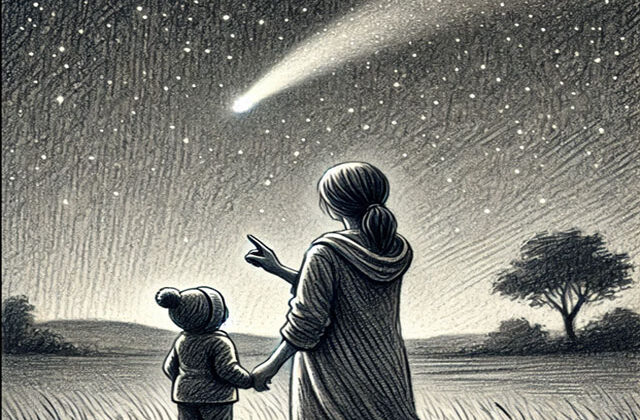
People these days are very conscious of the importance of exercise for good health. They regularly visit the gym for a workout or they go to the park for jogging on a daily basis. They set apart time for it and won’t easily allow anything else to interfere with their exercise schedule. Now, what a physical workout is for the body is reading for the mind. The mind is like a muscle; it needs exercise and the best exercise for it is reading.Try reading for 20 minutes a day. Sit down in a quiet place with a book and give your brain a fitness session. Your brain will be delighted and you will soon see surprising results.
To make reading a habit requires certain conditions and preparation. Let me share with you just five points that help us to make reading a regular habit.
- Access to a variety of books
In a reading pattern survey, researchers found that children who had access to books, free choice of reading material, and the time to read during class hours, were better motivated to read, and as a result, developed a reading habit, and experienced positive changes in their reading behaviour. These changes stayed with them for a long time, even after the research. This study strongly suggests that both young and adult learners can benefit from extensive and pleasurable reading if they avail of the following key factors: a well-equipped library, easy access to books, the time to read, and of course some encouragement. Easy access to books is the key factor here.
- Freedom to choose materials
There are different types of readers. I shall list a few. 1) Habitual Readers – they love reading; 2) Partial readers – they start reading a book, but will soon ‘drop out’;3) Polygamist readers – they read multiple books at the same time;
4) Digital readers – they embrace technology to the fullest, e-readers, own a lot of e-books, audiobooks, etc.; 5) Non-fiction readers – they read many historical books; 6) Fiction readers –they love to read books that take them to different universes; indeed, they are imagination seekers; 7) Emotional readers – they love to resonate and feel everything with a higher intensity;
8) School and college readers – they read only school and college books; theirreading journey ends with their studies; 9) Writer-readers – they critique and compliment the authors they read. 10) Serious readers – they read many self-help books and take notes as they read. There are also other types of readers.
From this, we understand that people choose books according to their interests and tastes. The facilities available and the freedom to select or access books will mean a lot to all these types of readers.
- Enjoy reading: Sense of accomplishment
If you do not enjoy what you read, it will become difficult to keep reading. Reading then becomes a burden or punishment. If you do not feel a sense of satisfaction, a feeling that you are gaining something from the reading, you will not feel like continuing. This is more true of readers who are beginners. Here, I do not mean that you should read only what gives you enjoyment. There are many things that are useful in life and needed that we should learn which may not be entertaining or pleasing to us all the time.
In this digital age, the reader faces many technological distractions and temptations. It is much more pleasurable, for example, to watch a video than to read a written message. It is much easier to watch a movie on the TV than to read a book, especially for youngsters. Advertising exploits the power of images more than words. That serves their purpose. But the human mind needs the stimulation that comes from reading. Hence, we must try to strike a healthy balance between watching the screen (TV, cell phone, etc.) and the printed book.
The reading habit of today’s generation is highly affected by the digital media. UNESCO conducted a study on mobile reading in developing countries and found that mobile devices are the most favoured reading devices of millions of people worldwide because of their efficiency, proximity and convenience. Today almost any book will be available in digital format too. It does not matter whether you read a physical book or its digital version. If the reading happens, if the reader is getting sufficient information and they enjoy their reading, the purpose is achieved.
- Positive reading attitude
Every book may not interest you. But each book has its own value and purpose. There will always be someone who is waiting for the book that you may not find interesting. While we try to choose books that match our interests, we should have an open attitude to books in general. Sometimes it is good to read on a subject that has never attracted you, something that you thought was not of interest to you. Mature readers do it and often they are pleasantly surprised by the new or additional insights and information they gain from such reading. There is an interesting story about the world-renowned Polish anthropologist Bronislaw Malinowski. He was a scientist and mathematician. One day, he happened to read the book, The Golden Bough, written by the British anthropologist, George Frazer. After reading it, Malinowski was so attract ed by anthropology that he abandoned science and went to the London School of Economics to study Anthropology and became one of the leading anthropologists of the twentieth century.
- Independent readers:
Language development
Students should be encouraged to become independent readers. An independent reader is one who makes it a habit to read, on their own, books, newspapers, magazines, etc. that are not strictly part of their school curriculum. Many researchers believe that independent reading plays a key role in the development of reading fluency (speed and ease of reading), vocabulary, phonological awareness, background knowledge, spelling, grammar, literacy proficiency, and linguistic gains. They must understand from a young age that language development is not a one-day match; it needs continuous and constant practice by way of independent reading.
Key takeaway
Reading will assist you to understand the minds of a great scholars, thinkers, and change-makers of the world. So, keep reading. =






